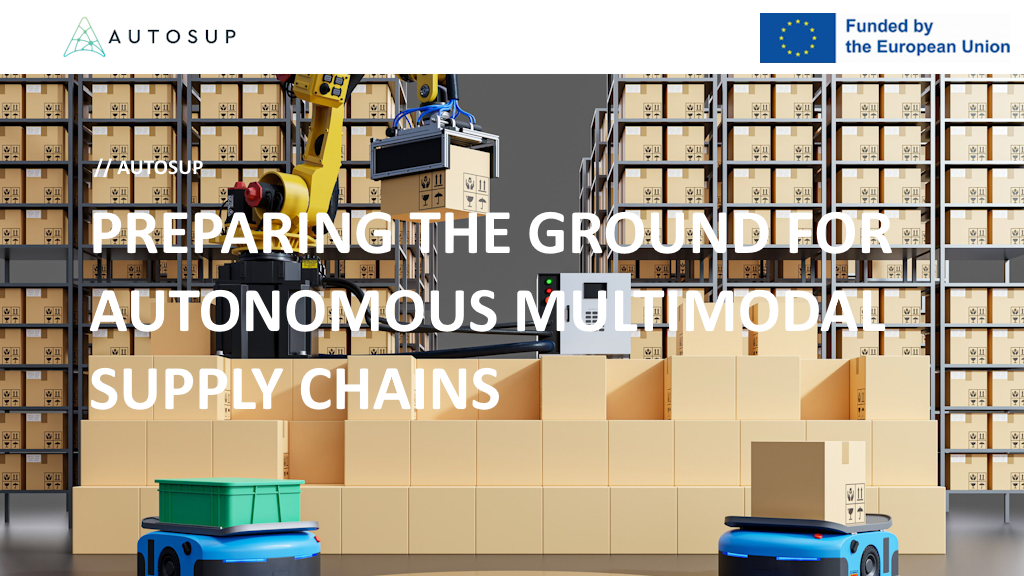Preparing the ground for autonomous multimodal supply chains
The European freight Transport and Logistics (T&L) industry is transforming into a new era driven by digitalization and technological advancements, creating new business models and zero-emissions freight transport opportunities. The automation of processes and the advent of autonomous T&L systems stand out as defining trends, impacting the planning and execution of the logistics processes of the future. Automation is a key enabler of the ongoing transition to a “Physical Internet”, aimed at reshaping Supply Chain (SC) processes to adequately serve the demand of production.

Transcending a fragmented approach
Innovative digitalization and automation technologies increasingly impact operational logistics and offer opportunities to introduce new business and sustainable freight transport models. These are crucial in the transition towards the “Physical Internet” in which full systems integration is crucial. AUTOSUP will stimulate this transition by enhancing these automation processes through a comprehensive approach, whilst supporting strategic decisions about future investments.
Objectives
With the European-funded project AUTOSUP a solid and notable European consortium will define the transition path for transforming SC nodes such as ports and intermodal hubs into seamlessly operating multimodal automatic freight transport platforms by moving away from current siloed automation approaches.
AUTOSUP will define the automation requirements and empower T&L stakeholders with an open, ready-to-use data-driven Decision Support System (DSS), integrating customizable Digital Twin models of autonomous SCs, to support the feasibility analysis and implementation of new operational, governance, and organizational change management models.
AUTOSUP will empower the two large transport nodes to meet the challenges of port automation and digitalization head-on and provide a transition path towards AUTOnomous Multimodal SUPply Chains, aiming at reduced investment and operational costs, supply chain resilience, reduced transshipment time, reduced environmental impact, advanced collaboration and interoperability.
Case studies
The autonomous hub is the first step in entering the world of ‘Physical Internet logistics networks’. In AUTOSUP, the partners will develop concrete operational models for end-to-end intermodal logistics, focusing on the link of the Port of Antwerp-Bruges and the Port of Trieste with road corridors, rail, inland waterways and airports. The two ports will serve as ‘Living Hubs’ (LH) in which the operational and cost efficiency, and user acceptance of the automation solutions will be validated in the 6 use cases which cover all existing and also new modes of transport.
ESC contribution
ESC will lead the policy package within AUTOSUP (Task 4,2). The AUTOSUP policy package comprises recommendations for regulatory and policy actions to support adopting automated solutions for multimodal logistics hubs at the EU level.
In developing key recommendations and observations, it considers the outcomes of the project and the forum of stakeholders from various viewpoints, including transport and technology industries, research and academia, societal and business bodies, and multiplier networks (sectorial, retail, etc), in the context of the regulatory framework of EU.
The policy package will address gaps and foster harmonisation across transport modes, while considering human-centric, environmental, technological, automation, and security factors.
Further information
For more information, please visit the AUTOSUP website.
